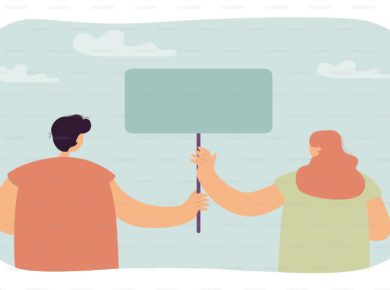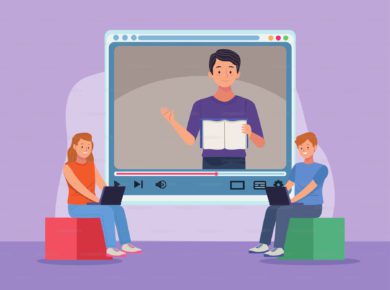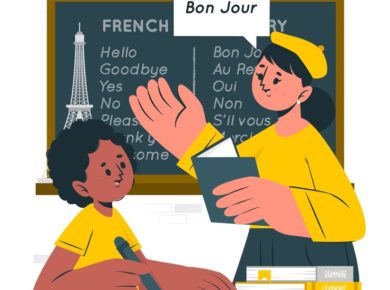For lesson planning, instructing students, collaborating with administration, classroom management, and communicating with parents, teachers need a variety of skill sets. While some basic classroom skills, such as tolerance and leadership, are innate in every person, the majority may be learned via practice and instruction. Students’ learning is facilitated by teachers who use their abilities to create a positive learning environment. As part of their duties, teachers may also have to complete a variety of administrative chores. In addition, they are frequently tasked with fostering effective communication between the school and students, between the school and parents, and occasionally between students and parents. To excel at these important things, you should teach and master a few important classroom skills for teachers. Here is a list of important classroom skills for teachers and tips to improve them.
Communication skills
The importance of communication skills in classroom management and a teacher’s life, both inside and outside the classroom, is great. Ideal teachers should be adept at written, oral, and soft communication skills. Strong verbal communication involves teachers clearly outlining their expectations and delivering their lectures while explaining concepts in a way that students can comprehend.
In addition, it is more likely that students will be engaged in the lesson when teachers employ their basic classroom skills 0like smiling frequently and making eye contact with their learners.

Tips on how to develop:
Regular reading and writing will help you get better at communicating and creating a wholesome learning environment. By paying attention to your posture and mannerisms, you can also increase the impact of your soft communication skills.
Patience
Classroom skills for teachers include being aware that the students in their classrooms will have a range of intellectual talents, learning styles, and cultural backgrounds. For example, sharp and above-average students will probably participate more actively in class discussions and be more relaxed, but many students also pose other difficulties, such as disagreements and interruptions.
In these circumstances, teachers and students should be able to remain calm while striking a balance between their expectations and the distinct personalities of each other.
Tips on how to improve:
Patience is a quality that all people possess by nature. However, for effective teaching, you should increase your tolerance by deliberately recognizing your risk factors for impulsive behavior.
Conflict resolution
Solving conflicts and disagreements in a classroom is one of the teacher’s most important responsibilities. Conflicts about sharing toys, games, or books could spoil the classroom environment. A teacher with strong conflict resolution skills will use patience and active listening to weigh all arguments and reach a compromise. Unfortunately, teachers often have to play the role of a counselor and resolve conflict outside the classroom.
Tips on how to develop:
View every conflict as a chance to get some beneficial insights. Make sure conversations don’t turn into fights and ruin your classroom environment. Instead, encourage your students to respect one another, even when they disagree and understand the other person’s point of view.
Creativity
Passion is crucial for maintaining the students’ attention when instructing at any age level. Use creativity to keep your students’ interest during class planning and lecture delivery. Maintain your sense of humor, be adaptable, and be aware that what works for one student or class won’t always work for others. Keeping your sessions interactive is the best way for teachers and students to enjoy the lesson. Think out of the box and be creative in your course delivery method.
Tips on how to progress:
Regardless of your skill level, regularly practice an artistic interest. Think about implementing brainstorming exercises in the classroom, and value original and uncommon ideas. Take inspiration from creative content you consume, and then impart pertinent lessons to your students for effective teaching.
Technological skills
Technological skills are becoming more crucial for teachers as classrooms grow to incorporate technology. For example, teachers may utilize computers and different ed-tech tools to create lesson plans, worksheets, study guides, tests, and other deliverables and keep track of grades. Teachers also use digital resources in the classroom for effective teaching, such as interactive exercises and online games.
Tips on how to grow:
Stay updated on technology developments in your industry and incorporate them into your classroom management. Appropriate learning apps and new technologies should be tried out. Be willing to learn about technology from your students while also imparting your knowledge to them.
Some have to put in a lot of effort to be adept at classroom skills for teachers, while teaching comes rather readily to some who are born leaders. Whichever group you fit into, Classplus can give you a significant advantage if you want to assist learners worldwide and create a creative learning environment.
The team at Classplus helps you design your teaching app through which you can manage your teaching, students, classroom, and fees as well. All basic classroom skills can be accomplished at the click of a button. You do not need to be tech-savvy to access and maintain the app. The team also takes care of its maintenance, upgrades, and bug fixes. Connect with us now and talk to our experts!




